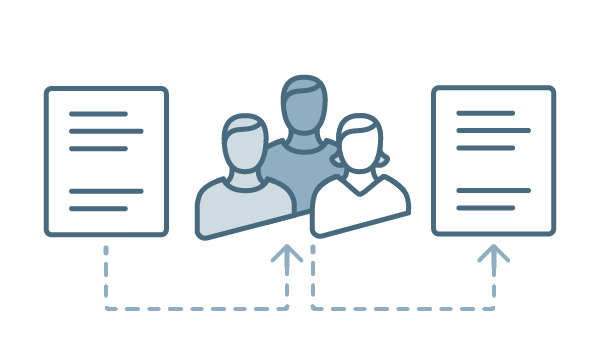The Editor-in-Chief aims to ensure that all articles their journal publishes meet agreed editorial, ethical and best practice standards and are scientifically valid. Each Editor or Editorial Board Member in handling a manuscript also then takes responsibility for ensuring the quality of manuscripts which are accepted and protecting the integrity of the scientific record.
Before peer review
Before peer review, the Editor should ask themselves:
- Is the manuscript within your journal’s scope and of sufficient interest?
If it is not, but appears to be otherwise scientifically valid, the Editor can offer the authors a transfer to another more suitable journal via the Springer Nature transfer service. For more information please speak to your Publisher contact or read about our transfer desk. - Does the manuscript appear to be sound overall?
For example, are the methods appropriate to answer the research question, and do the conclusions appear to be supported by the data? If the manuscript contains fundamental flaws, the Editor can reject the submission at this stage, providing comments to the author to explain the decision. - Does the manuscript adhere to the journal’s editorial policies? All manuscripts must adhere to Springer Nature’s editorial policies. Editors should be familiar with these and any additional editorial policies specific to their journal. This aspect of the initial assessment of a manuscript can sometimes be the most challenging, and most interesting, part of the whole manuscript handling process.
- Are there language concerns?
If a manuscript requires copy editing to improve the quality or clarity of the language used, the Editor can recommend a professional editing service such as those provided by our affiliates Nature Research editing service or American Journal Experts.
If a manuscript fails to pass these initial questions or is deemed to be obviously flawed, or below the interest level of the journal, the Editor may reject the manuscript at this stage without sending it for peer review.
During peer review
We recommend that the Editor make a decision based on the advice of two independent reviewers. To give an informed and unbiased opinion on a manuscript, reviewers should be well qualified, with a significant and steady publication record, and an in-depth knowledge of the subject matter and methodology. Some manuscripts may require additional independent reviewers, particularly if multi-disciplinary or if they require the specialized skills of a statistician.
Criteria for a suitable reviewer include:
- Reviewers must be experienced in the subject area or methodology of the submitted manuscript
- Ideally reviewers will have an active, consistent, and recent publication record
- Their publications should be on topic to the submitted manuscript
- Reviewers should be ‘independent’ of one another i.e. not both work at the same institution and should also be independent of the Editor
- Finally, there should be no obvious bias or conflict of interest
Avenues for identifying peer reviewers include:
- Use of the Springer Nature Reviewer Finder Tool
- Investigate the reference list of the manuscript
- Make use of online tools, such as PubMed or Google Scholar
- Check suggestions made by candidates who have declined to review
- Consider authors of articles published in the journal on similar topics
- Approach invited speakers of meetings
- Identify potential reviewers on your Editorial Board
- Check Editorial Board lists from other journals for inspiration
Springer Nature is committed to diversity, equity and inclusion and we strive for diverse demographic representation of peer reviewers. Editors are strongly encouraged to consider geographical regions, gender identities, racial/ethnic groups, and other groups when inviting peer reviewers. Discover our best practice guidance for the recruitment of peer reviewers here.
After peer review
Once the reviews have been submitted, the Editor should then read the comments carefully and interpret them in view of the journal’s editorial criteria, in order to reach an informed decision. The role of the Editor is to adjudicate over the review process and make a final judgement on whether:
- The manuscript adheres to the ethos, editorial standards and scope of the journal
- Further experiments or changes suggested by the reviewers are essential
- The conclusions need to be toned down to accurately reflect the findings
What to consider when making a decision after review:
- Consider the specific arguments made by the reviewers and reach an editorial decision rather than relying on their recommended decision type
- If the reviewers disagree, could this be because they have differing areas of expertise and perspectives?
- Have the reviewers made recommendations beyond the scope of the study or that go against editorial policy?
- Are the reviewer comments in line with the ethos, editorial standards and scope of the journal?
Decision Types:
There are variations in terminology for the decision types used by different journals and imprints, but these will equate broadly to the following categories:
- Accept: This option is usually used at the end of the peer review and revision process to accept a manuscript for publication and move it into the production workflow.
- Revise: Editors should use this option if the manuscript is likely to be acceptable for publication after some changes and modifications. It is important that the Editor provides guidance noting particular areas to focus on and explaining reviewer comments further if necessary.
- Reject and transfer: With this option, the authors are offered consideration in another Springer Nature journal if the manuscript is not in scope or does not meet the interest threshold for a journal.
- Reject without inviting resubmission or transfer: This option is usually used for manuscripts that contain fundamental flaws and are not acceptable for publication in any journal. For all reject decisions, it is important to provide authors with the reasons for rejection and why their work is not suitable for the journal.
















